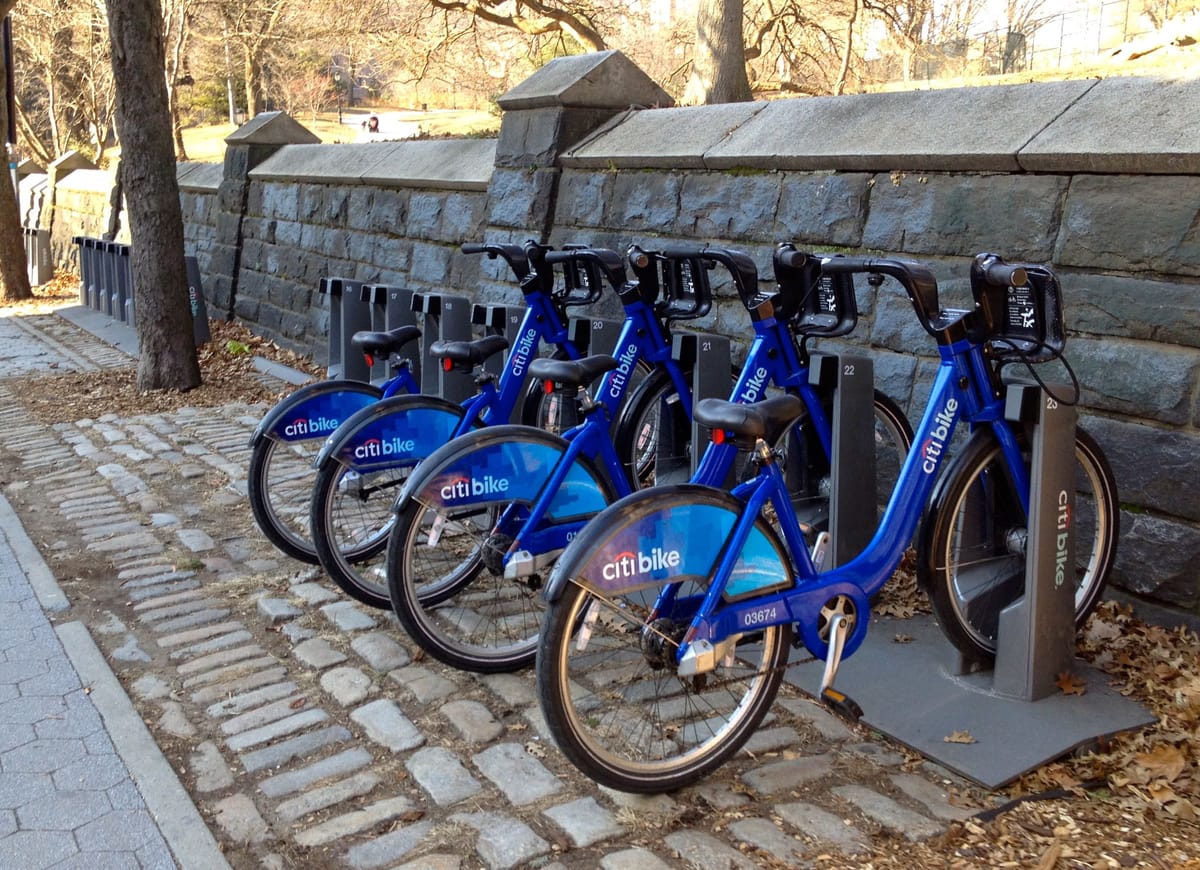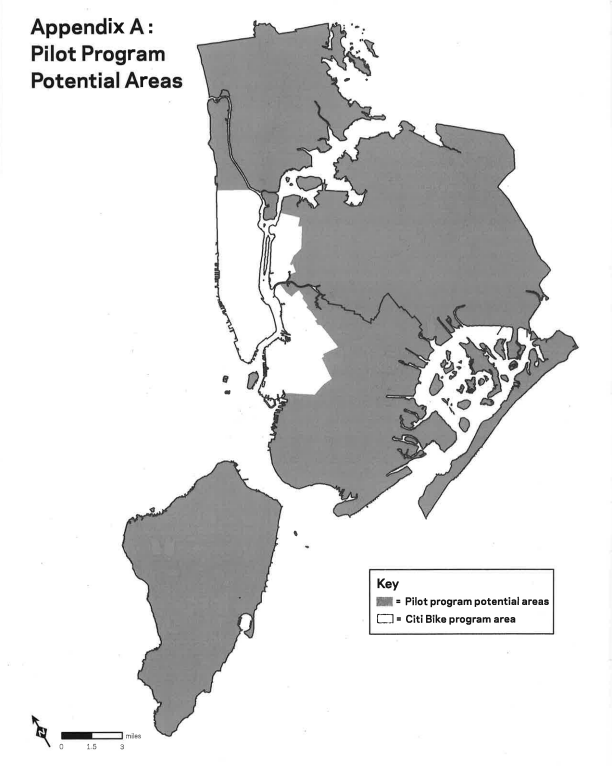DOT Explores Expanding Bike Share Program Across NYC With Dockless System

Mayor de Blasio announced last week that the New York City Department of Transportation (DOT) released a Request for Expressions of Interest (RFEI) aimed at expanding bike sharing across all five boroughs.

While the city will continue to support its successful Citi Bike share program, the RFEI is looking for innovative companies with ideas on “dockless” public bike share technology. In an effort not to undermine the Citi Bike program, the ideas DOT is requesting will serve neighborhoods outside of Citi Bike’s service area, most notably the Bronx and Staten Island. The new “dockless” system should complement Citi Bike’s existing service.
According to the RFEI, a dockless system is a “network of publicly available bicycles with technology that allows for all essential system and locking components to be installed in the bicycles themselves,” eliminating the need for docking stations which tend to take away parking spaces and anger some New Yorkers who don’t want the grey behemoths situated in front of their properties. Riders can rent and park dockless bikes at any point within designated service areas where bicycle parking is permitted.
According to the Mayor’s announcement, dockless bike share programs have “lower capital and operating costs and may help bring bike share service to more outer borough neighborhoods, at a faster rate, than is possible under the current model for Citi Bike expansion.”
The Mayor’s announcement includes DOT’s priorities for a dockless bike share pilot program:
- Feasibility—Exploring the concepts of “dockless” models for providing bike share services and investigat[ing] the feasibility of instituting such options in areas of New York City not currently served by the City’s existing Citi Bike Program.
- Practicality—Examining the practicality of a “free-locking” bike share in New York City. Free-locking bicycles include mechanisms that unlock bikes via mobile phone and render them inoperable when not in use. They are otherwise free-standing, i.e. not locked to a dock, bike rack, or any other fixed object.
- Public Safety—Seeing that dockless bike share operations are safe for both riders and pedestrians, and that vendors can ensure their bikes do not obstruct other street and sidewalk uses.
- Operations—Examining vendors’ plans and capabilities for keeping bicycles within a designated service area.
- Regulation—Determining standards for “rebalancing” (making sure bikes are evenly distributed across a service area to meet community demand) ahead of any pilot launch.
- Pricing and Economic Sustainability—Exploring bike share models that are both sustainable and affordable for New Yorkers. (In other American cities with dockless systems, trips are often priced at $1 per 30-minute ride.)

Launched in 2013, Citi Bike currently has more than 130,000 annual subscriptions, with more than 60,000 trips taken daily during peak seasons. The program offers 12,000 bikes at 750 stations located across Manhattan and parts of Brooklyn and Queens.
While the Bronx and Staten Island stand out as areas not served by Citi Bike, according to the Brooklyn Daily Eagle, only 20% of Brooklyn currently has access to the program.
Neighborhoods in Brooklyn with Citi Bike stations include: Bed-Stuy, Boerum Hill, Brooklyn Heights, Carroll Gardens, Clinton Hill, Cobble Hill, Downtown Brooklyn, DUMBO, Fort Greene, Gowanus, Greenpoint, Park Slope, Red Hook, and Williamsburg. The program added approximately 400 bikes to Crown Heights, Prospect Heights, and Prospect-Lefferts Gardens in September.
Council Member Brad Lander (District 39) also released a statement last week expressing his concerns about DOT’s RFEI.
Lander stated while a dockless bike share program has the potential to “expand transportation in neighborhoods deprived of connections and create more affordable transit options for all New Yorkers,” DOT’s seeking additional vendors instead of expanding on Citi Bike’s current system, “has the potential to clutter our streets, as we have seen in other cities across the world.”
He added that a “new disconnected dockless program” is “likely to push back the long-awaited expansion of bike share for hundreds of thousands of New Yorkers in the neighborhoods adjacent to Citi Bike’s current footprint by at least two years.” Some of these neighborhoods include Sunset Park, Windsor Terrace, Kensington, and Bushwick, among others.
Click here to read de Blasio’s announcement and here to check out DOT’s RFEI.



